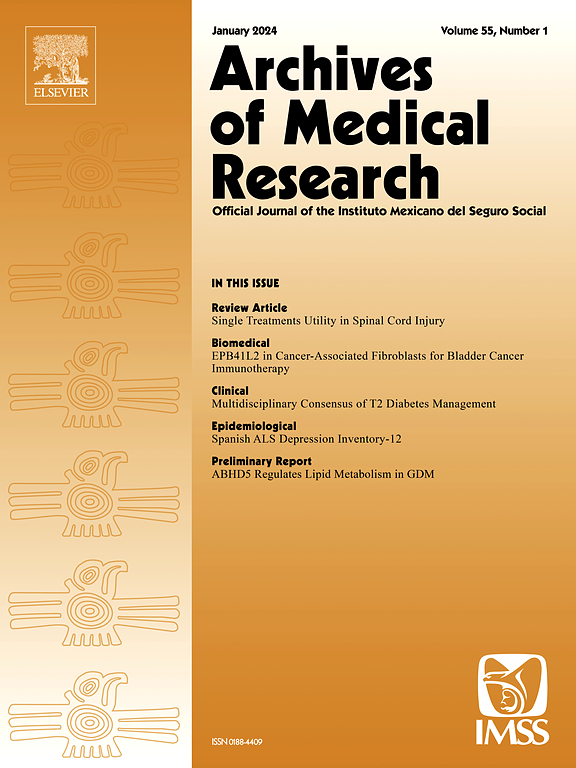睡眠作为中介:解读咖啡、运动和精液质量之间的复杂关系。
IF 3.4
3区 医学
Q1 MEDICINE, RESEARCH & EXPERIMENTAL
引用次数: 0
摘要
目的:鉴于全球精液质量下降,研究影响男性精液质量的可改变因素(如生活方式)至关重要。这项横断面观察性研究评估了咖啡摄入量、身体活动、睡眠和精液质量之间的关系。方法:共有3302名年龄在18-60岁的男性参与者接受了泌尿科评估,提供了精液样本,并参与了人体测量和与精液质量相关的生活方式因素的问卷调查。研究人员使用多元线性回归模型来检验咖啡摄入量、身体活动、睡眠和精液质量之间的关系。此外,研究人员还建立了中介模型,以探索睡眠在咖啡摄入量、身体活动和精液质量之间的潜在中介作用。结果:不喝咖啡与精子总运动率、精子渐进运动率呈正相关,与精子不运动率呈负相关。体力活动也与精液量呈正相关。亚组分析显示,体育活动减轻了咖啡对精液质量的影响。此外,中介分析显示,入睡时间介导了咖啡消费量与精液质量之间的关系。此外,平均每晚睡眠时间介导了体力活动与各种精液运动参数之间的关系。结论:咖啡摄入量、体力活动、睡眠和精液质量之间的关联具有统计学意义。这些发现强调了健康的生活方式对最佳男性精液质量的重要性。本文章由计算机程序翻译,如有差异,请以英文原文为准。
Sleep as a Mediator: Decoding the Complex Relationship Between Coffee, Exercise, and Semen quality
Objectives
Given the global decline in semen quality, it is crucial to investigate the modifiable factors, such as lifestyle that influence semen quality in men. This cross-sectional observational study evaluated the association between coffee intake, physical activity, sleep, and semen quality.
Methods
A total of 3,302 male participants, aged 18–60 years, underwent urological assessments, provided semen samples, and participated in anthropometric measurements and a questionnaire addressing lifestyle factors related to semen quality. A multiple linear regression model was used to examine the associations between coffee consumption, physical activity, sleep, and semen quality. Furthermore, mediation models were developed to explore the potential mediating role of sleep in the relationship between coffee intake, physical activity, and semen quality.
Results
The results showed that not drinking coffee was positively associated with the sperm total motility rate, and the sperm progressive motility rate, and negatively associated with the sperm immotility rate. Physical activity was also positively correlated with semen volume. Subgroup analysis showed that physical activity mitigated the effect of coffee on semen quality. In addition, mediation analysis revealed that the time of falling asleep mediated the relationship between coffee consumption and semen quality. Moreover, the average duration of nightly sleep mediated the relationship between physical activity and various semen motility parameters.
Conclusions
The associations among coffee intake, physical activity, sleep and semen quality were statistically significant. These findings highlight the importance of a healthy lifestyle for optimal male semen quality.
求助全文
通过发布文献求助,成功后即可免费获取论文全文。
去求助
来源期刊

Archives of Medical Research
医学-医学:研究与实验
CiteScore
12.50
自引率
0.00%
发文量
84
审稿时长
28 days
期刊介绍:
Archives of Medical Research serves as a platform for publishing original peer-reviewed medical research, aiming to bridge gaps created by medical specialization. The journal covers three main categories - biomedical, clinical, and epidemiological contributions, along with review articles and preliminary communications. With an international scope, it presents the study of diseases from diverse perspectives, offering the medical community original investigations ranging from molecular biology to clinical epidemiology in a single publication.
 求助内容:
求助内容: 应助结果提醒方式:
应助结果提醒方式:


